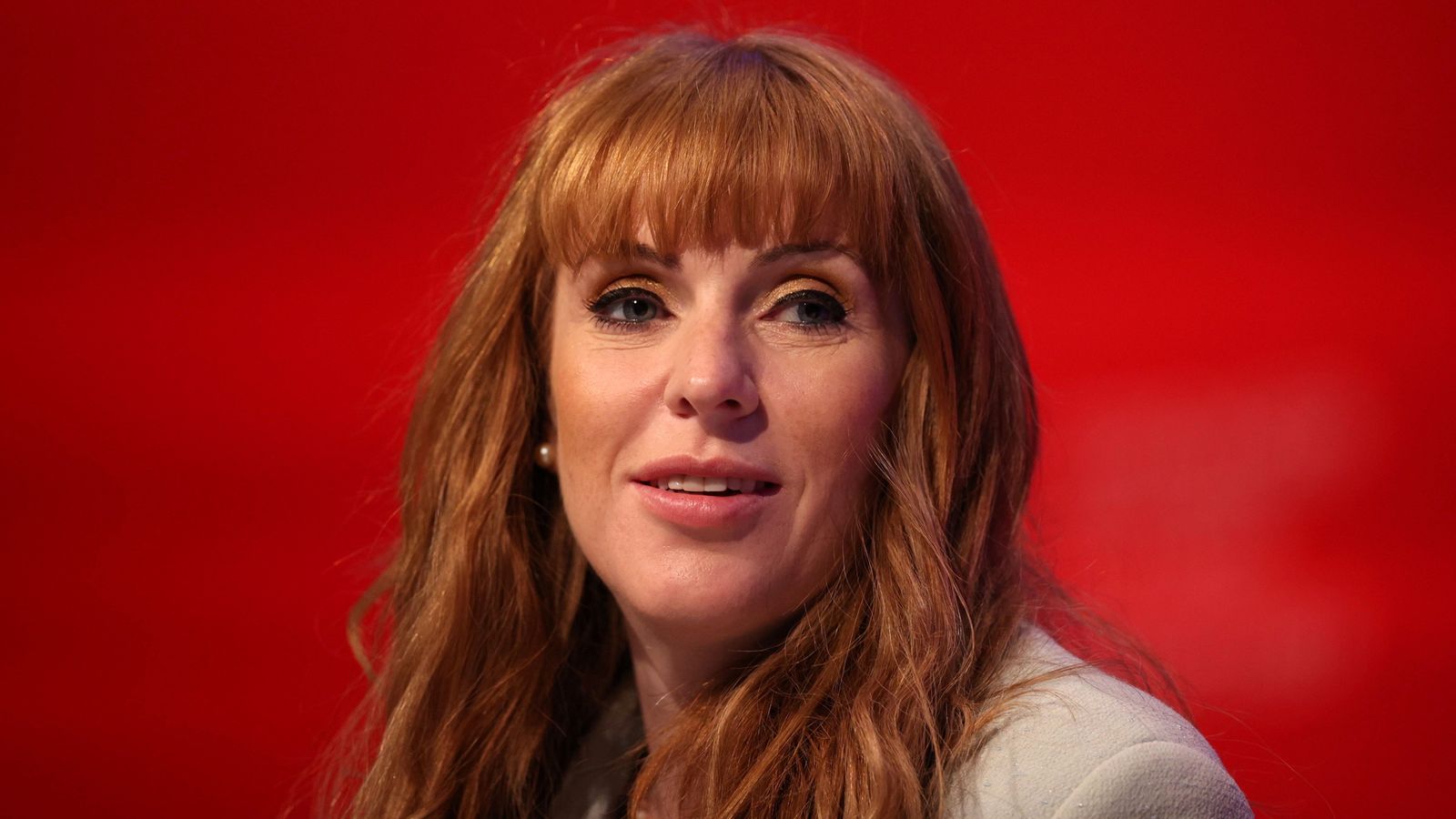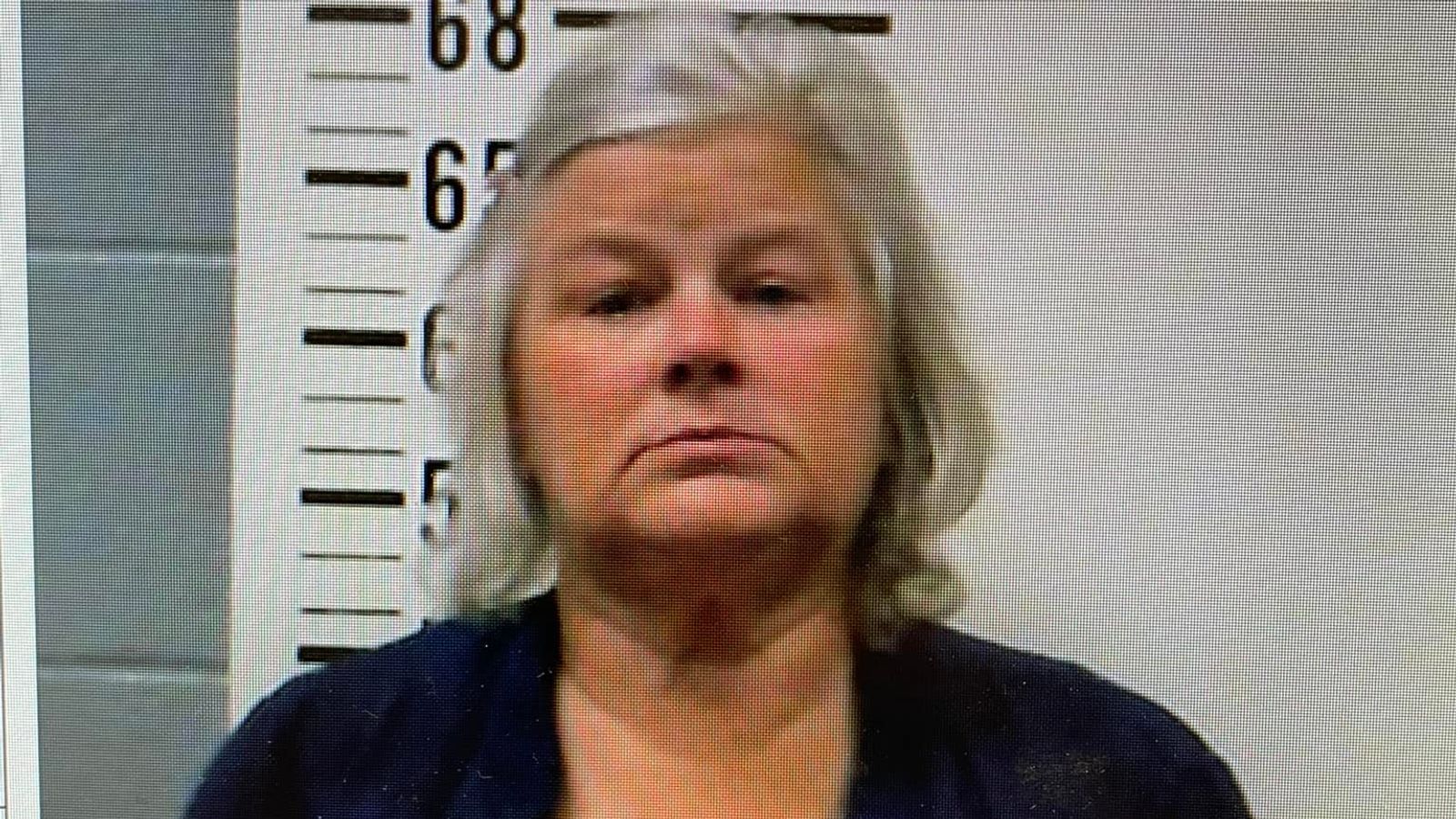Angela Rayner is set to become the UK’s deputy prime minister if Labour wins the next general election.
With Labour’s annual conference starting this weekend, here’s what you need to know about the party’s deputy leader – from her early life and career in politics to the abuse and controversy she has faced.
Early life and career
Born in Stockport in 1980, Ms Rayner was brought up on a council estate. She left school at 16 with no qualifications and pregnant with her first son.
She says she was told she would “never amount to anything”.
“When I was young, we didn’t have books because my mother couldn’t read or write,” Ms Rayner said in an interview with the Financial Times.
She told the newspaper she could easily have been taken into care and admitted she felt “resentment” because, as a child, she had to look after her mother, who had bipolar disorder.
After giving birth, Ms Rayner went to college part-time, studying British sign language and social care.
Soon after becoming a care worker for the local council, she was put forward as a union rep.
“I was mouthy and I would take no messing from management,” Ms Rayner said.
From there, she became a full-time union official and rose through the ranks to become Unison’s convenor in the North West, representing 200,000 workers.
Ms Rayner married Unison official Mark Rayner in 2010. The couple separated in 2020.
She has three sons and in 2017, she became a grandmother.
Life in politics
Ms Rayner entered parliament In 2015, when she became the first woman MP in the 180-year history of her Ashton-under-Lyne constituency.
She went on to hold the position of shadow pensions minister, before becoming a member of the shadow cabinet, holding the education and women and equalities briefs.
She was elected as deputy leader of the Labour Party in 2020 but was sacked as party chair following poor results in the English local elections.
In September 2023, she was appointed shadow levelling up secretary in a reshuffle aimed at putting the “strongest possible players on the pitch” ahead of the next election.
Read more:
Rayner puts boot into Labour’s critics
Angela Rayner makes ‘cast iron commitment’ on workers’ rights
‘Principles would not have fed me’
Ms Rayner is known for being on the left of the Labour Party and has described herself as a socialist “but not a Corbynite”.
But she has also defended compromises she has made with colleagues in the shadow cabinet, saying she will not let her principles “block” her party from getting elected.
Speaking to the Beth Rigby Interviews programme in January, she said it was “not about getting rid of my principles”.
Please use Chrome browser for a more accessible video player
But she added: “When I was a free school meals kid, principles would not have fed me. It was the free school meals programme that Labour brought in.”
She said the only way for those projects to become a reality was a win at the ballot box, meaning the “overriding principle” for her was “delivery”.
Be the first to get Breaking News
Install the Sky News app for free
Abuse and controversy
Ms Rayner has received rape and death threats and has talked about how she had panic buttons installed at her home.
In 2021, a man was sentenced after he admitted sending a threatening email telling her to “watch your back and your kids”.
Separately, on the day of the sentence, Ms Rayner apologised “unreservedly” for calling Conservatives “scum” during her party’s conference the previous month.
She had initially refused to apologise but later said she would not use the same language again having reflected on the “threats and abuse” that often feature in politics.
Please use Chrome browser for a more accessible video player
In 2022, a Mail On Sunday article claimed Tory MPs had accused her of a “Basic Instinct” ploy to distract Boris Johnson by crossing and uncrossing her legs.
Describing the article as “disgusting”, Ms Rayner said the piece “wasn’t just about me as a woman, it was also steeped in classism and about where I come from, where I grew up”.
The article received a huge backlash, with even Boris Johnson saying while he did not agree with her politically, he “deplore[d] the misogyny directed at her anonymously”.










